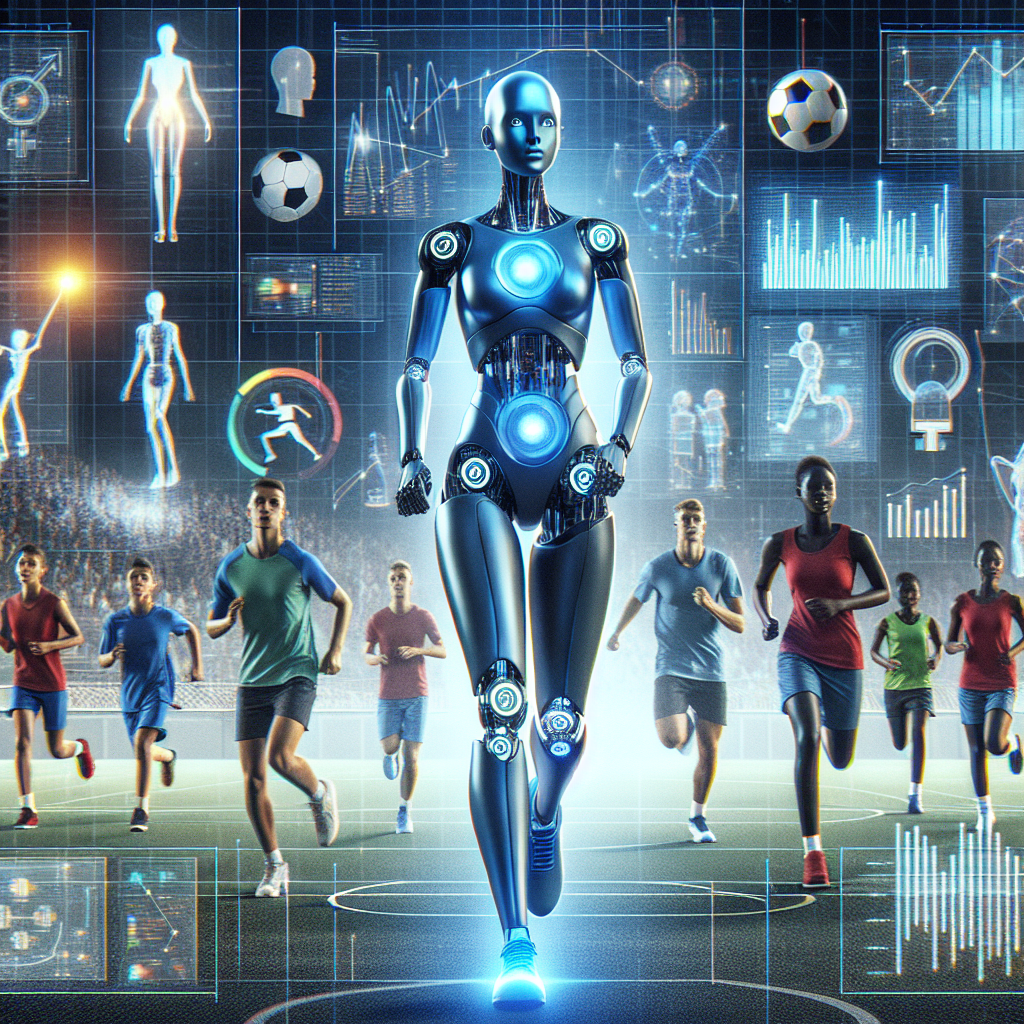Artificial intelligence (AI) has been rapidly transforming various industries, and sports analytics and performance is no exception. With the increasing availability of data in sports, AI-driven solutions have become invaluable tools for coaches, athletes, and teams looking to gain a competitive edge. From enhancing player performance to optimizing team strategy, AI is revolutionizing the way sports are analyzed and played.
One of the key areas where AI is making a significant impact is in player performance analysis. By leveraging machine learning algorithms, coaches and sports scientists can analyze vast amounts of data to identify patterns and insights that were previously impossible to uncover. AI can analyze player movements, techniques, and physiological data to provide personalized training programs that can help athletes improve their performance and prevent injuries.
For example, wearable devices equipped with sensors can track an athlete’s movements and collect data on their performance during training sessions and games. This data can then be fed into AI algorithms that can provide real-time feedback on technique, form, and intensity, helping athletes make adjustments to improve their performance. AI can also analyze the data to identify potential areas for improvement and suggest personalized training programs tailored to each athlete’s needs.
AI-driven solutions are also being used to optimize team strategy and performance. By analyzing game footage, player data, and other relevant information, AI can help coaches identify opponents’ strengths and weaknesses, develop game plans, and make in-game adjustments to maximize their team’s chances of winning. AI can also simulate different game scenarios to help coaches and players prepare for various situations and make informed decisions during games.
Furthermore, AI can help sports organizations improve fan engagement and revenue generation. By analyzing fan data, including social media interactions, ticket sales, and merchandise purchases, AI can help teams better understand their fans’ preferences and behavior. This can enable teams to tailor marketing campaigns, promotions, and in-game experiences to better engage with fans and increase revenue.
Despite the many benefits of AI-driven solutions in sports analytics and performance, there are also challenges and concerns that need to be addressed. One of the main challenges is the ethical use of AI in sports, including issues related to data privacy, bias, and fairness. It is important for sports organizations to ensure that AI systems are transparent, accountable, and comply with regulations to protect the rights and interests of athletes and fans.
Another challenge is the implementation of AI solutions in sports, as it requires significant investment in technology, infrastructure, and training. Sports organizations need to have the right expertise and resources to effectively integrate AI into their operations and ensure that it delivers the expected benefits. Additionally, there may be resistance from coaches, athletes, and other stakeholders who may be skeptical of AI or feel that it threatens their traditional roles and methods.
Despite these challenges, the potential of AI-driven solutions in sports analytics and performance is immense. As AI technology continues to advance and become more accessible, sports organizations that embrace AI will have a competitive advantage in player development, team strategy, and fan engagement. By leveraging AI to analyze data, gain insights, and make informed decisions, sports teams can enhance their performance on and off the field, ultimately leading to greater success and growth.
In conclusion, AI-driven solutions have the potential to revolutionize sports analytics and performance, offering coaches, athletes, and teams a powerful tool to improve their performance, optimize their strategy, and engage with fans. By harnessing the power of AI to analyze data, gain insights, and make informed decisions, sports organizations can stay ahead of the curve and achieve their goals in an increasingly competitive and data-driven industry.
FAQs:
Q: How is AI used in sports analytics?
A: AI is used in sports analytics to analyze vast amounts of data on player performance, team strategy, and fan engagement. By leveraging machine learning algorithms, AI can provide insights and recommendations to help coaches, athletes, and teams improve their performance, optimize their strategy, and engage with fans.
Q: What are some examples of AI-driven solutions in sports?
A: Some examples of AI-driven solutions in sports include wearable devices equipped with sensors to track athlete performance, AI algorithms that analyze game footage to identify opponents’ strengths and weaknesses, and AI systems that analyze fan data to personalize marketing campaigns and promotions.
Q: What are the benefits of using AI in sports analytics and performance?
A: The benefits of using AI in sports analytics and performance include improved player performance, optimized team strategy, enhanced fan engagement, and increased revenue generation. AI can provide valuable insights and recommendations to help sports organizations achieve their goals and stay ahead of the competition.
Q: What are the challenges of implementing AI in sports?
A: Some of the challenges of implementing AI in sports include ethical concerns related to data privacy and bias, the need for significant investment in technology and training, and resistance from coaches, athletes, and other stakeholders. Sports organizations need to address these challenges to effectively integrate AI into their operations and realize its full potential.

